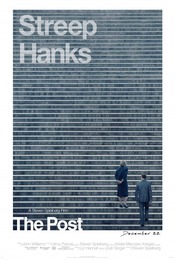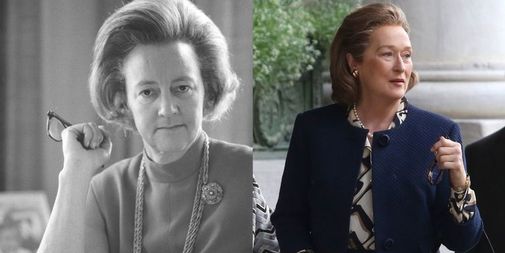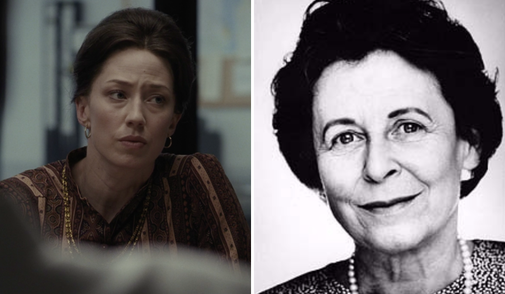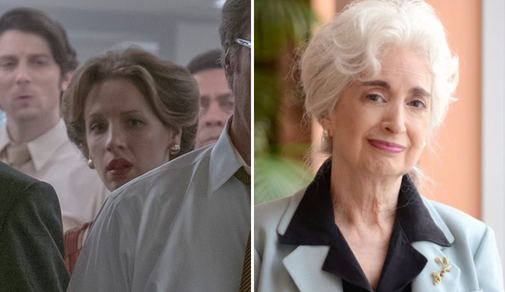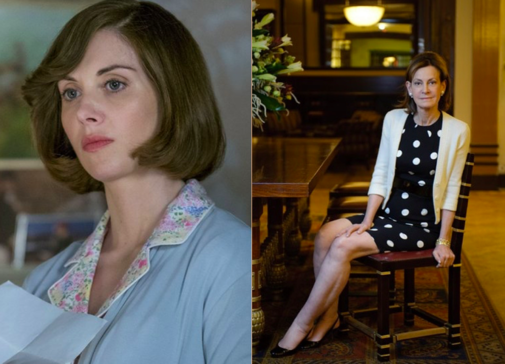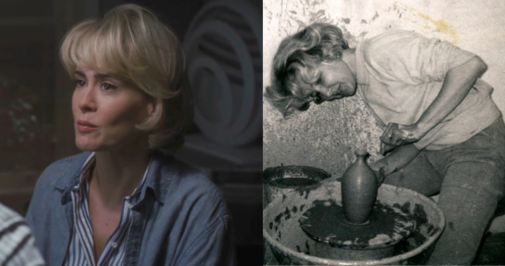By Spencer Coile
There is a scene during a climactic moment in The Post where Katharine Graham (Meryl Streep), publisher for The Washington Post, wades into a crowd. News outlets and reporters swarm around her, probing her decision to run an article exposing the U.S. government for their involvement in the Pentagon Papers. Without uttering a word, she glides past the press, but the camera slows as Katharine finds herself surrounded by a small group of women in this crowd, all staring at her with admiration.
The Post serves as a timely reminder for why we should never underestimate the impact one powerful woman can make. Though Katharine Graham is the central female focus of the film, Spielberg's latest work features multiple women: they are reporters, wives, mothers, daughters. Each character provides insight into this pivotal moment in American history. So how does The Post honor their legacy?
Meryl Streep as Katharine "Kay" Graham
As the first female publisher for "The Washington Post" (a position that fell on her after her husband's death), Kay entered a field with the odds stacked against her. The film shows us that every decision she makes is micro-managed by the men around her; men who are on her board, but do not have the power to make major decisions for the newspaper. A defining scene features Katharine fretting over the newspaper's IPO and her rehearsing what she will say to members of her board, as well as potential investors in the paper. However, when the meeting begins, she relinquishes the power to speak to her male associate; because he's speaking the male dominated room listens.
It's abundantly clear that Katharine Graham was paramount to The Post's controversial but successful decision to run their article on the Pentagon Papers. Yet, as complex as Graham is, the film does not offer much nsight about her aside from this singular defining choice. On the surface, Katharine is depicted as complex -- and Meryl surely gives her dimension -- but the film is not interested in who Katharine Graham is, but what she did in that moment.
Bonus points, though, for that golden caftan.
Carrie Coon as Meg Greenfield
Meg, a reporter, won the Pulitzer Prize for Editorial Writing in 1978. She was an integral member in the group of journalists who helped to uncover the Pentagon Papers. While Coon gives this tiny role her all, Meg is not offered enough in the film aside from some quippy remarks to her all-male coworkers and the chance to recite the theme of the film:
The press was to serve the governed, not the governors.
Jessie Mueller as Judith Martin
I gasped when I saw Tony Award winner Jessie Mueller in The Post -- I had no idea she was in this! Playing a columnist for The Post, Mueller is only featured in a couple of scenes, and is mostly backgrounded. Never mind that Martin wrote an advice column titled "Miss Manners" for decades or worked extensively to explore supposedly simple "rules of conduct," leading to her own "heavy etiquette theory." In this cinematic universe, her only role is to be a side character who was not given access to Nixon's daughter's wedding due to her aggressive reporting.
Alison Brie as Lally Weymouth
As Katharine's daughter, Alison Brie is is mostly seen offering her screen mother sage advice. Brie and Streep's scenes together are a nice departure from the others in which Kay is bombarded with advice from men. Unfortunately Lally is only the stock supportive confidante. The film attempts to reconcile this threadbare character with one scene between Lally and Katharine, where Katharine attempts to explain the doubt she experiences as a mother, as a leader, and as a woman. Brie is excellent, reacting subtly with one tear rolling down her cheek. She doesn't have to do much; when acting with a beautiful Streep monologue, react accordingly and tear up!
Sarah Paulson as Antoinette "Tony" Pinchot Bradlee
Saddled with the "supportive wife and mother" role, Paulson makes the most of her limited screentime attempting to breathe some life into Tony Bradlee, wife of Ben Bradlee (Tom Hanks), the executive editor for The Post. Tony was a sculptor but she mostly spends the film serving sandwiches to Bradlee's employees.
Tony does get an essential scene near the end of The Post. When her husband begins to question Katharine's ability to lead the newspaper, with the stakes so high, Tony offers some female insight. To defy the men who have underestimated her since the beginning of her leadership, to put her career on the line like this is brave. The ideas she spells out may be too scripted but they remind her ambitious husband that being a woman in that time was no easy feat. Paulson sells this moment with quiet dignity.
Unlike many true story films The Post avoids sharing any details about what happened to these characters after the events that unfolded with the Pentagon Papers. That's not surprising since the film is more about theme than character. The Post is a time capsule for one brief moment in American history but that theme is depressingly relevant to the current political and social landscape.
